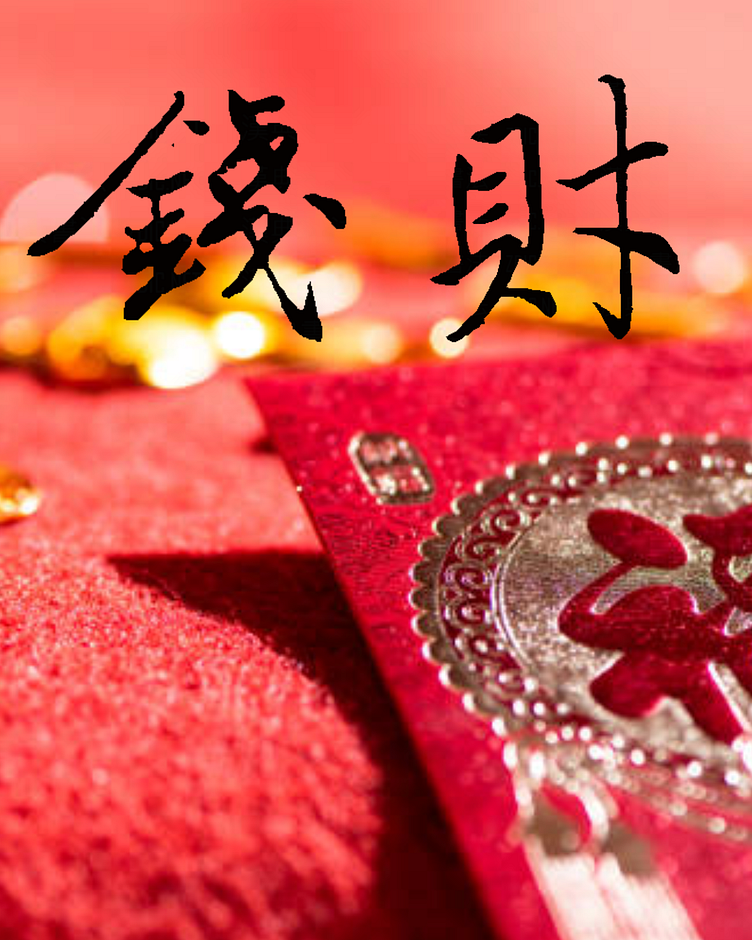Chinese calligraphy "錢財" (Qiáncái)
The Chinese characters on the red envelope say "錢財" (Qiáncái). This is a homophone for the phrase "錢財" (Qiāncái), which means "a thousand treasures". The characters are written in Kaishu, a style of calligraphy that is often used for formal documents and signage. The characters are written in a bold, confident style, and the brushstrokes are even and well-spaced. The calligraphy is overall very well-executed, and it is a beautiful example of Kaishu.
The character is written in a traditional style, with thick and thin strokes that create a sense of balance and harmony. The overall effect is elegant and sophisticated.
The character "錢財" means "money and wealth." It is a common Chinese character that is used in many different contexts, including everyday conversation, business, and literature. The character is composed of two parts: "錢" (qián), which means "money," and "財" (cái), which means "wealth." The two parts are combined to form a more complex meaning that refers to both material and financial resources.
In Chinese culture, money and wealth are seen as important symbols of status and success. However, they are also seen as a means to an end, rather than an end in themselves. The goal of acquiring money and wealth is not just to accumulate possessions, but to use them to improve one's life and the lives of others.
The character "錢財" is often used in Chinese proverbs and idioms. For example, the proverb "錢財如糞土" (qián cái rú fèn tǔ) means "money is like dirt." This proverb is used to emphasize the importance of not attaching too much importance to money.
The character "錢財" is also used in many Chinese expressions. For example, the expression "錢財萬貫" (qián cái wàn guàn) means "to be wealthy." This expression is used to describe someone who has a lot of money.
The character "錢財" is a versatile and meaningful character that plays an important role in Chinese culture. It is a symbol of status, success, and wealth, but it is also seen as a means to an end. The character is often used in Chinese proverbs, idioms, and expressions, and it is a common sight in Chinese writing and art.
